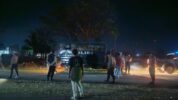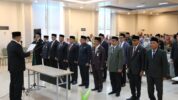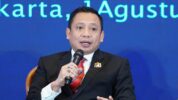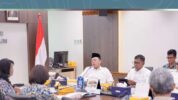Hong Kong’s Saga : A Part Of Proxy – War Between China VS Us And Allies
The group of muscled and heavily-tattooed young men from Ukraine descended last week upon the streets of the autonomous Chinese territory, gripped by chaotic protests for months. The ‘tourists’ were eager to see the sights – barricades and burning things – as well as watch the show, as in the clashes between protesters and police.
Proxy-war over Hongkong’s riots
Eventhough, several force and brutal mass rallies have been happening in Hong Kong, those situations did not make the Chinese government’s surrender to fighting their national goals in Hong Kong. Then, the Chinese National People’s Congress’ approval of a draft decision on the imposition of a new national security law on Hong Kong. The law will likely take effect later this year and change the nature of rights and freedoms for Hongkongers.
On Thursday, China’s National People’s Congress voted 2,878-to-1 in favor of a decision that authorizes a process to draft a national security law that will directly be imposed on the semiautonomous Hong Kong region. The vote itself (specifically on “Decision on Establishing and Improving the Legal System and Enforcement Mechanisms for the Hong Kong Special Administrative Region to Safeguard National Security”) does not result in a law right away, but starts the process, which will likely conclude by late August.
When all is said and done, Beijing will have established the means to directly crack down on activities it considers undesirable in the city, including what it interprets as terrorism, separatism, or secessionism.
The NPC’s vote has confirmed the worst fears among Hong Kong’s democrats, who see this as the final nail in the coffin for “one country, two system.” Chinese Premier Li Keqiang defended the law by saying that it would amount to the “steady implementation of the ‘one country, two systems.’” Li’s wording echoed a pledge made by Xi Jinping himself during a 2017 visit to Hong Kong—long before last year’s unrest over an extradition bill spiraled into a broader movement about the city’s destiny itself.
Much will depend on how major international players, including the United States, react. On Wednesday, a day before the NPC vote, Mike Pompeo, the U.S. secretary of state released a statement noting that he had officially certified “that Hong Kong does not continue to warrant treatment under United States laws in the same manner as U.S. laws were applied to Hong Kong before July 1997.”
U.S. President Donald J. Trump at a Friday press conference announced new measures pertaining to China. This included plans to revoke Hong Kong’s special customs and travel status; sanction certain Chinese and Hong Kong officials; and suspend travel rights to the United States for certain Chinese individuals (including some students).
The press conference also included an announcement that the United States would withdraw from the World Health Organization. Details remain unclear.
The clash spilled over into the United Nations, where China shot down a U.S. bid to have Hong Kong brought up at the Security Council, calling it a “a matter of urgent global concern that implicates international peace and security.”
The governments of the United States, Australia, Canada, and the United Kingdom released a joint statement saying that: Hong Kong has flourished as a bastion of freedom. The international community has a significant and long-standing stake in Hong Kong’s prosperity and stability. Direct imposition of national security legislation on Hong Kong by the Beijing authorities, rather than through Hong Kong’s own institutions as provided for under Article 23 of the Basic Law, would curtail the Hong Kong people’s liberties, and in doing so, dramatically erode Hong Kong’s autonomy and the system that made it so prosperous.
The European Union’s high representative for foreign affairs and security policy, Josep Borrell Fontelles, said in a statement that the EU was following developments in Hong Kong closely. His statement came after the vote on the draft decision came to be part of the agenda of the NPC. “The European Union has a strong stake in the continued stability and prosperity of Hong Kong under the ‘One Country Two Systems’ principle,” Borrell said. “It attaches great importance to the preservation of Hong Kong’s high degree of autonomy, in line with the Basic Law and with international commitments,” he continued. Japan, meanwhile, noted it was “seriously concerned” by the NPC’s decision—a somewhat rare statement from Tokyo at a time when relations between it and Beijing have been broadly improving.
I can predict that between China and the United States will make and meddle in the next several global disputes on security, political, economic and social matters. Both of two countries will prepare to make “shadow World War III through proxy-war scheme which will be played by them around the globe” to check and to evaluate how their capability, capacity including their weaknesses if “true World War III will happen”.
The writer is a columnist on an international and national issues. He had earned his master degree at the University of Indonesia (UI). Toni Ervianto.(*)
Terbit : Jakarta, 9 Juni 2020.







